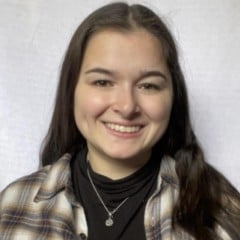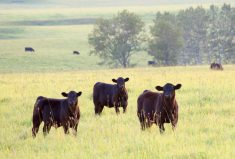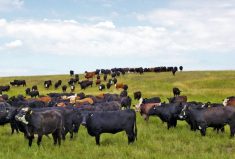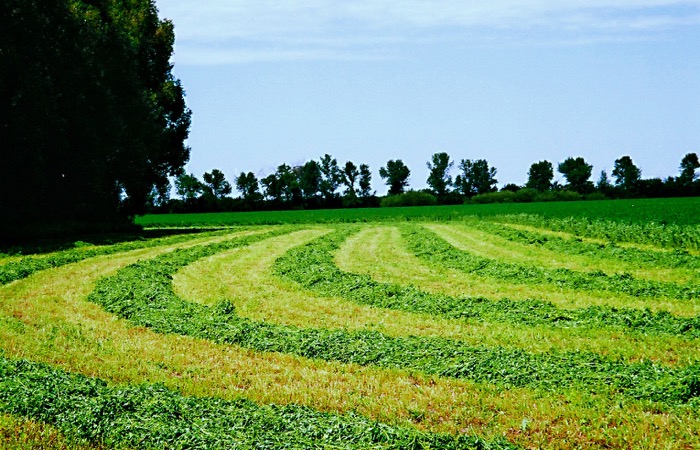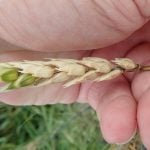Farmers for Climate Solutions, a national coalition of farmer-led and farmer-supporting organizations, launched a mentorship program in 2022. Also known as FaRM, they offer three learning streams on the topics of advanced nitrogen management, advanced grazing systems and cover cropping.
Cedric MacLeod with the Canadian Forage and Grassland Association (CFGA) says a few people at CFGA took a mentorship program from the Canadian Cattle Association in 2003-2006. Since then, MacLeod says he’s always wanted to be involved with one himself, so he jumped on the chance when Farmers for Climate Solutions reached out.
“I went to work and basically built out what I thought a program would look like in the modern day and age,” MacLeod says. “And then (Farmers for Climate Solutions) did manage to find a pot of money and called us up and said, ‘Do you want to do it?’ and I said, ‘We are ready to roll.’”
Read Also
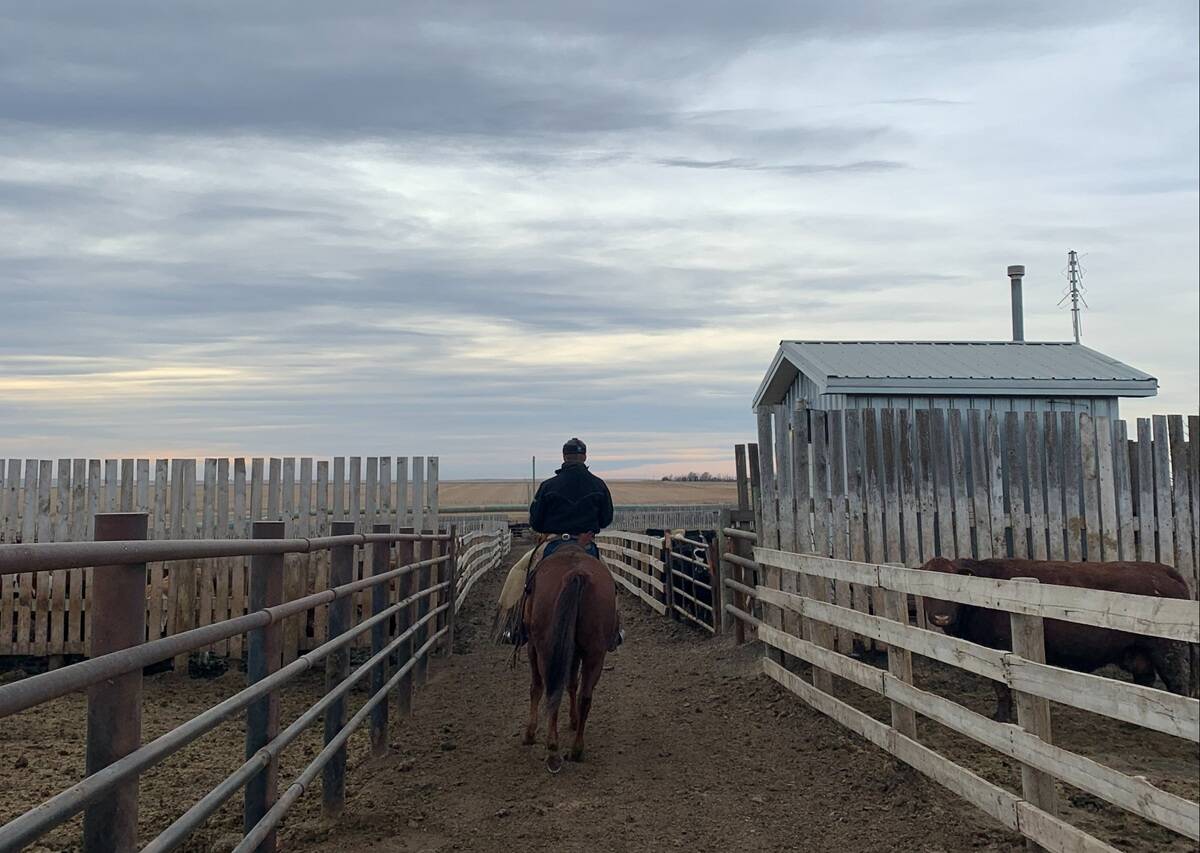
Pen riders still better than tech at detecting respiratory disease in feedlot cattle, says researcher
Recent research found that pen riders are better than tech at flagging signs of BRD in feedlot cattle
MacLeod says the program was designed to provide mentors with the knowledge and tools they need to consistently support growers and to help build out grazing plans.
“One thing that we identified as a bit of a gap in grazing is certainly as a science, but it’s also a lot of art mixed in like a lot of things in agriculture,” he says. “And different advisors have different approaches. We want to just create a bit of a standardized approach that people could choose to use if they were experienced and had their own system.”
Mentors were chosen by provincial forage and cattle associations, such as Manitoba Beef and Forage Initiatives and Saskatchewan Cattlemen’s Association. These associations reached out to people they knew were active in the grazing community to see if they had an interest in mentoring.
Producers interested can work with a mentor — or do the entire class using online resources. MacLeod says whatever gets producers interested in the class is equally as important.
“Most talk about the first post being the most difficult to pound. And knowing where to pound that first post is the very first hurdle to get through,” MacLeod says. “This program will help you to identify where to pound that first post…we’ve got all the tools to support growers in advancing their grazing systems and we were excited to use it.”
The grazing stream isn’t the only mentorship program, however.
Karen Klassen is an executive director with Manitoba Organic Alliance and a Manitoba farmer who is heavily involved with the cover cropping mentorship program.
“Because I’m going to help run it, I thought I would also be a mentor,” Klassen says. “So I’m kind of involved on both higher-level training organization part of it and have been on the ground actually doing the mentorship just so I can get a feel for how it works on the ground, in real life, and get some feedback.”
Klassen explains that there are mentors all over the country involved with the class, meaning producers who are interested in taking it will be able to have access to a mentor within their province.
As a mentor herself, Klassen hosted a farm tour in July with the program. She says it drew both conventional farmers and organic farmers, as well as farmers who have never grown a cover crop.
“It was a really, really good experience for me as a mentor, just because I’m getting out of it as much as I’m putting in from the learning aspect of it,” she says.
Cover cropping is a technique used by both grain farmers and cattle ranchers and is a growing area of interest for many producers. Klassen says that’s a reason why it’s important to offer experiences such as the mentorship program.
“I think there’s so much evidence about the value of cover cropping and the value it adds to your farm, to soil health,” she says. “The ecological benefits, both from an environmental point of view, if you’re a hardcore environmentalist or even if you’re just profit-driven,” Klassen says.
All of the FaRM programs offered by Farmers for Climate Solutions are free. Although 2022 has been the pilot year, both Klassen and MacLeod plan to continue.

